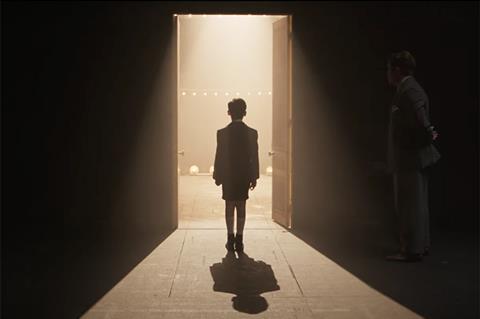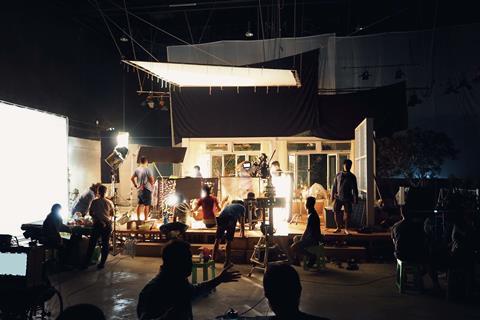Italy’s tax credit, increasing the number of international co-productions and the challenges facing the Iocal film industry were among the key talking points at the third Audiovisual Producers Summit which took place this week in Calabria in southern Italy.
The event, organised by Italy’s Audiovisual Producers Association (APA), brought together around 200 execs from the Italian, US, French and UK film and TV industries.
They included Amazon Studios head of Italian scripted originals Davide Nardini, new Wildside CEO Sonia Rovai, Sony Pictures Television president of international Wayne Garvie, Banijay chief digital officer Damien Viel, Franklin Entertainment’s DeVon Franklin, Palomar co-CEO Nicola Serra, Cosmopolitan Pictures founder Ben Donald, Netflix director for Italian language series Luisa Cotta Ramosino and Rai Cinema’s Paolo Del Brocco.
Italy’s reformed tax credit
Everyone was waiting for news on when revisions to Italy’s audiovisual tax credit which has a headline rate of 40%, would be confirmed and the credit re-activated. Introduced in the wake of the pandemic, the tax credit has been instrumental in boosting production levels in the country.
Italy’s ministry of culture has been working on reforms to the tax credit for the past year to refocus the credit on Italian talent, locations and stories. However this has caused film productions to delay shoots until the details of the changes are confirmed.
Speaking to Screen at the Summit, Lucia Borgonzoni, undersecretary of state to the ministry of culture, said the reforms are just waiting for the sign off from Italy’s ministry of finance, and will be completed “before summer.” The ministry says the reforms are not aimed at reducing the money available to fund the tax credit.
Several producers expressed frustration at how long the reforms have taken to finalise and said banks aren’t prepared to finance film productions until they know the precise level of funding the tax credit will provide.
However, Chiara Sbarigia, the president of the APA, sought to put the changes into perspective. She said her organisation had co-operated closely with the ministry of culture on the reforms, saying the most important thing had been to “keep the tax credit safe… because it’s a huge investment by the government.” Overall, she said the changes are relatively small. “We have a 40% tax credit for cinema projects. We have 35% for audiovisual projects. And for the international productions as well, we have 40% of rebate. It is a lot.”
Italian embrace
Italy wants to build on its growing reputation as an international filming hub and co-production partner – one that has recently attracted shoots such as Johnny Depp’s biopic of Italian artist Amedeo Modigliani Modì, Julian Schnabel’s crime mystery In The Hand Of Dante, Joe Wright’s Mussolini series M: Son Of The Century, and Luca Guadagnino’s adaptation of William S. Burrough’s Queer starring Daniel Craig and Drew Starke.
One of the purposes of the Summit is to showcase Italian locations and funds and to act as an informal meeting place for Italian execs and their international counterparts. It’s also to showcase regions outside traditionally popular venues such as Rome, Florence and Venice. Hence the decision to hold it this year in the relatively little visited region of Calabria in the southern tip of Italy. (Last year it took place in the northern port city of Trieste).
Calabria is currently hosting Lux Vide and Rai’s big budget reboot of classic TV series Sandokan at a variety of locations and at studios that have been purpose-built for the show. The head of the Calabrian Film Commission, Anton Giulio Grande, told Screen the series could be a ‘game changer’ for the region both in terms of attracting other productions and tourists drawn to its landscapes. Among other projects to shoot in Calabria are Disney+ series The Good Mothers and the Manetti brothers’ Diabolik Chi Sei.
International co-production and partnerships was a big theme of the Summit. Among the execs presenting were Film France head Daphne Lora, the BFI’s head of international relations Agnieszka Moody and the director general of Italy’s cinema department in the Ministry of Culture Nicola Borrelli. Each explained what their country could bring to the table in terms of funding when working with an Italian coproducer.
AI tools
No conference in 2024 would be complete without a session devoted to the challenges and opportunities presented by AI. Banijay’s chief digital and marketing officer Damien Viel emphasised AI would have most impact as a “back-office tool” for the global production and distribution group. Viel cited the business opportunities of AI, in particular around automatic clipping, indexing and distribution of content. He also said AI was a tool to boost productivity and reduce the cost of production. “If we produce cheaper, there’s going to be so much more money for creativity and for starting new IPs”. Speaking on the same panel, screenwriter John August – a Writers Guild of America board member whose credits include Big Fish and Charlie and the Chocolate Factory – said he worried that AI tools “are going to be used to create something that replaces a lot of what we are doing.”
European stories
Delivering the Summit’s keynote, Sony’s Wayne Garvie challenged European producers to better exploit the continent’s ‘treasure house” of stories – whether tales of Roman emperors, Norse gods or French musketeers. US companies he said are traditionally better at reinterpreting European stories for international audiences, and then capitalising on their success by building worlds and franchises around their series and characters.
“Isn’t it time we evolve? To own the reinterpretation of our own stories? To find ways or reimagining them that resonate with global audiences. And see some of the stories and characters not as ends in themselves, but as the basis for new worlds,” said Garvie.
The fact so many classic Italian stories are being told by non-Italians is clearly exercising the Italian government. Borgonzoni flagged to Screen the upcoming launch of a €52m fund for film productions and series which tell Italian stories with international breadth and scope: “We want to push Italian producers to try and tell stories…about [subjects like] the Guccis or Ferraris, maybe making co-productions but where the Italians are in there.”
Production pressures
Paolo Del Brocco, the head of leading Italian film player RAI Cinema, said the Italian box office is suffering this year because of a lack of big US films as a result of last year’s strikes. Shortened theatrical windows are also an issue: Italian audiences were increasingly reluctant to come to the cinema knowing that films will land on streaming platform within weeks of release. He also said that the market cannot absorb the number of films now being made in Italy.
“There are too many movies compared to pre-pandemic times,” said Del Brocco.
The RAI Cinema boss explained it is important for his organisation to back up and coming directors and auteur films and intimate stories, but the industry should also look at telling stories that attract a broader audience and to make “movies with a wider breadth.” Added Del Brocco, ‘We shouldn’t be ashamed of saying this.”
More positively, the exec noted production quality in Italy has improved significantly in recent years, but that its industry ‘has a problem’ with budget inflation. “Movies cost two or three times what they did in the past.” He stressed that it was important to find a solution to production inflation, and that all components of the industry needed to come together to tackle it – from producers to agents to crew members.
Originally published at https://www.screendaily.com/news/italian-industry-debates-tax-credit-reform-co-productions-and-exploiting-local-stories-at-avp-summit/5194500.article
ShowBiz - Show Biz clinic originally published at ShowBiz - Show Biz clinic






